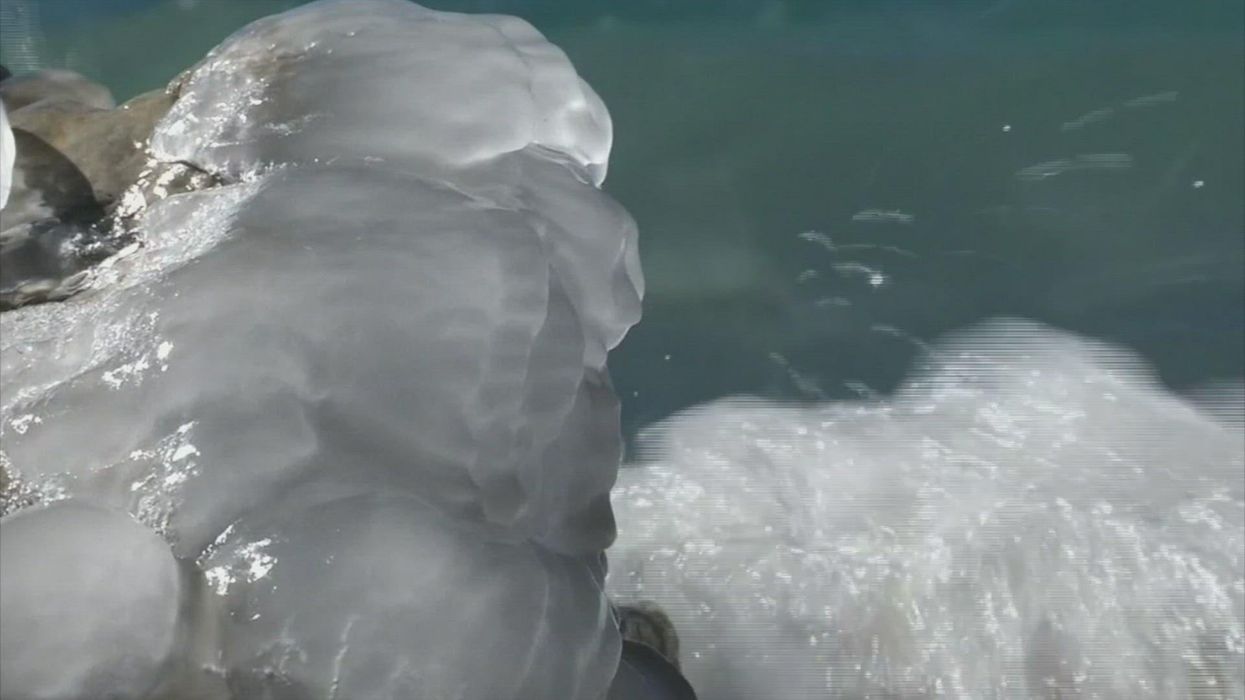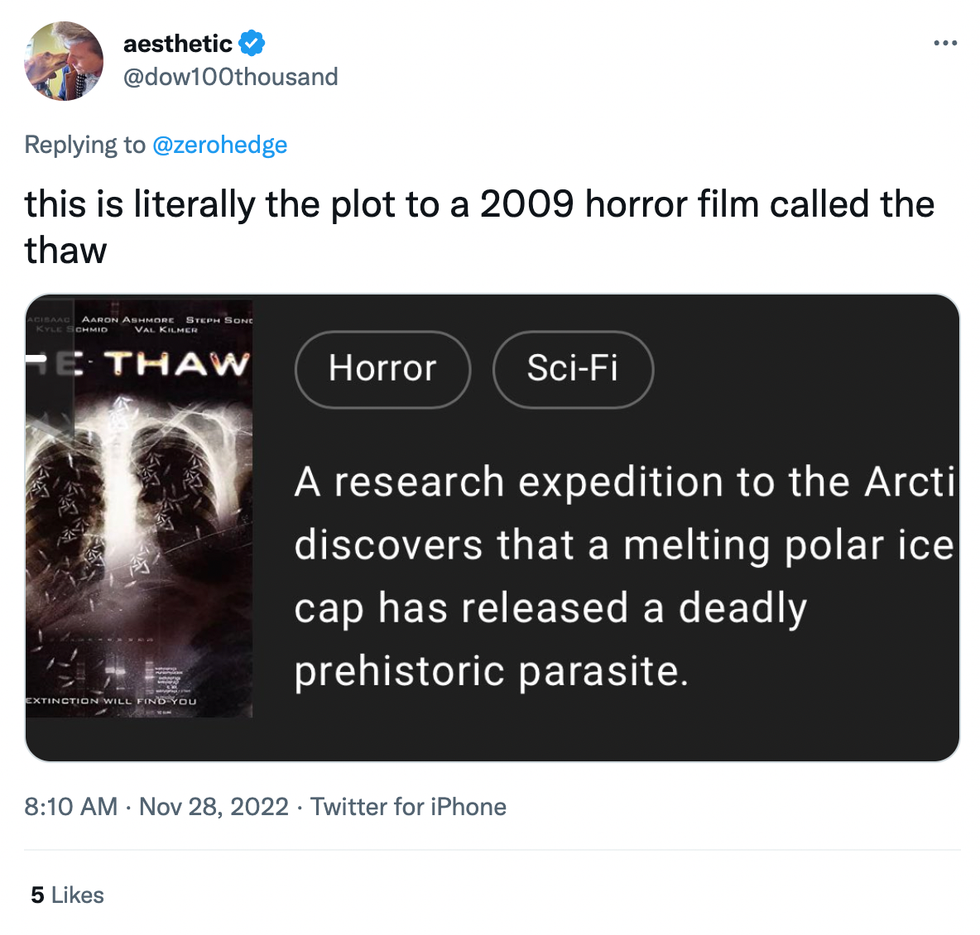Ariana Baio
Nov 28, 2022
15,000 Year Old Viruses Frozen in Time Coming Out of Melting Tibetan …
content.jwplatform.com
Global warming poses many threats to life on Earth - from rising sea levels to destroyed habitats to extreme weather. But scientists in Europe are pointing to a different concern - ancient "zombie viruses" frozen in time are being released into the air as ice melts.
Ancient microbes found in the permafrost of the Northern Hemisphere are at risk of being released as global warming heats the Earth.
To understand the microbes better, a team of scientists led by microbiologist Jean-Marie Alempic from the French National Centre for Scientific Research, have reanimated several viruses.
Taking seven different samples from the Siberian permafrost, scientists found 13 frozen viruses, one of which they estimate was from nearly 50,000 years ago.
Sign up for our free Indy100 weekly newsletter
"This study confirms the capacity of large DNA viruses infecting Acanthamoeba to remain infectious after more than 48,500 years spent in deep permafrost," a preliminary study says.
By reanimating the viruses, the scientists estimated which family they belong to.
The study concludes that most of the viruses isolated from the ancient permafrost belong to the "proposed family" Pandoraviridae, which are double-stranded DNA viruses that infect amoebae.
However great the discovery is for science, people online were warier of a possible "zombie virus" being reinstated.
The study is only an update on "eukaryotic viruses revived from ancient permafrost" and a more in-depth analysis will have to be done to determine more information about the viruses.
"How long these viruses could remain infectious once exposed to outdoor conditions (UV light, oxygen, heat), and how likely they will be to encounter and infect a suitable host in the interval, is yet impossible to estimate," the study says.
"But the risk is bound to increase in the context of global warming when permafrost thawing will keep accelerating, and more people will be populating the Arctic in the wake of industrial ventures."
Have your say in our news democracy. Click the upvote icon at the top of the page to help raise this article through the indy100 rankings.
Top 100
The Conversation (0)
















